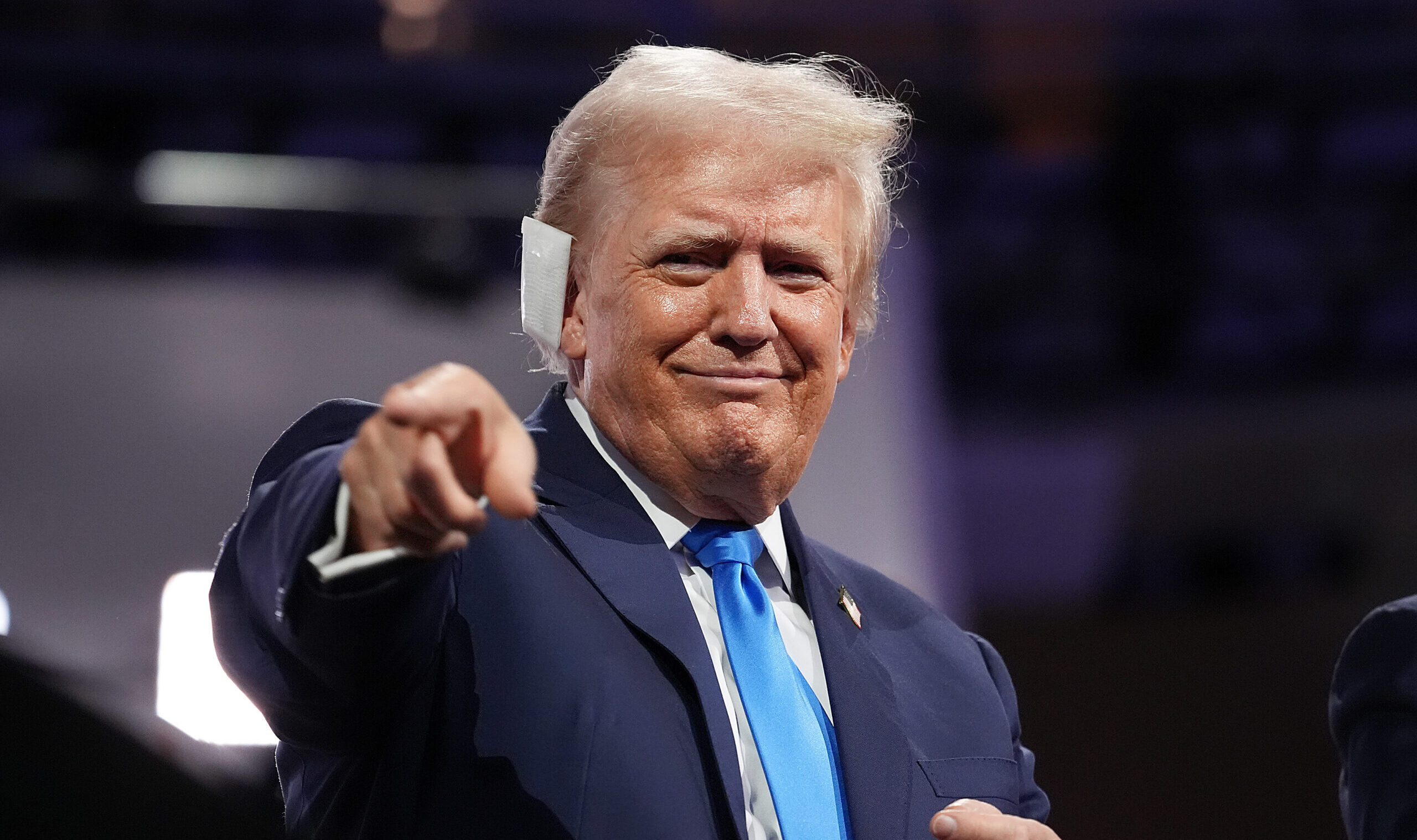In Trump We Trust, Still?
Trump’s base is wavering for the first time in his second term, just when he needs it most.

Back in 2016, the veteran conservative syndicated columnist Ann Coulter published the book In Trump We Trust: E Pluribus Awesome!
At the time, conservative pundits supporting Donald Trump, who had little history inside movement conservatism, were so rare that cable news networks had to recruit new talking heads to defend him because their usual stable of commentators and Republican operatives wouldn’t. This became especially imperative when Trump largely romped through the Republican primaries, winning the party’s presidential nomination and beginning a decade as its leader.
The title of Coulter’s book was often mocked as sycophantic. But unlike many of Trump’s media hangers-on—as mentioned above, a whole new conservative pundit class came into existence to do the jobs Bush-McCain Republicans wouldn’t do—Coulter tried to hold Trump accountable once in office, especially on immigration, the issue that most motivated her to endorse him. (It ran both ways: her previous book, Adios, America: The Left’s Plan To Turn Our Country Into A Third World Hellhole, was said to influence Trump on immigration.)
Trump empowered the genuine immigration restrictionists—most notably Stephen Miller—who had largely been confined to the House and Senate backbenches amid failed but frequent bipartisan amnesty talks. But like a lot of Republican voters, Trump wasn’t fully one himself, even if he shared many of their assumptions about assimilation, borders, sovereignty, and national security. During his first year as president, it looked like Trump might even go wobbly on the wall, his signature 2016 campaign promise, in pursuit of a bipartisan immigration deal of his own.
Coulter would have none of it. “Miles completed yesterday — zero,” she began writing regularly on pre-Elon Musk Twitter, then still Trump’s favorite social media platform. “Miles completed since Inauguration — zero.”
Over the past few years, however, trusting in Trump has gotten easier for the MAGA base. Years of campaign rallies has helped him build as strong an emotional connection with rank-and-file Republicans and their post-2016 allies or converts as anyone since Ronald Reagan. He was more or less able to do to George W. Bush and Dick Cheney what Never Trump would like to do to him.
Some of the things that strengthened this faith took place while Trump was out of office: the Democratic lawfare, the attempts to disqualify him from state ballots even as he was hurtling toward the Republican nomination for a third time, and of course the failed assassination attempts, especially the one a year ago in Butler, Pennsylvania, where he rose to his feet and pumped his fist after being shot.
Even Coulter climbed back aboard the Trump train after the first 100 days, though one can argue that she has hopped on and off more frequently than a subway turnstile jumper. Many hardline Trump supporters said after each executive order or court filing, “This is what I voted for.” E pluribus awesome!
Since then, that sentiment has perhaps been expressed by Sen. Lindsey Graham (R-SC) more than the MAGA faithful. Graham has been allied with Trump for a while now, and has played the Trump influence game better than almost anyone in Washington, D.C. But other people have gotten better at it too.
Just as Trump and his team have been much better prepared the second time around, so are people outside the usual MAGA tent who want things from the president—business executives, NATO leaders, and, after a bad start that saw him ejected from the White House like D.J. Jazzy Jeff in a Fresh Prince of Bel-Air rerun, Ukraine’s President Volodymyr Zelensky.
Basically, everyone but the Democrats in Congress and a handful of libertarians are trying to stay in Trump’s good graces.
Subscribe Today
Get daily emails in your inbox
At the precise moment Trump most needs his base to trust him—to believe that his instincts remain compatible with theirs even if his recent policy moves or negotiating tactics (the difference can be difficult to see) don’t seem to be—they are wavering for the first time in the second term. And the Jeffrey Epstein situation appears to have as much to do with this as Trump’s Ukraine pivot or the amnesty rumors.
We are entering the point in Trump’s presidency where he may need to rely on the political capital he has banked with those who have been with him through three presidential campaigns and two White House terms. Are those reserves now depleted, or is it only the terminally online who are tapped out?
To paraphrase the old saloon sign, in Trump we trust, all others pay cash.